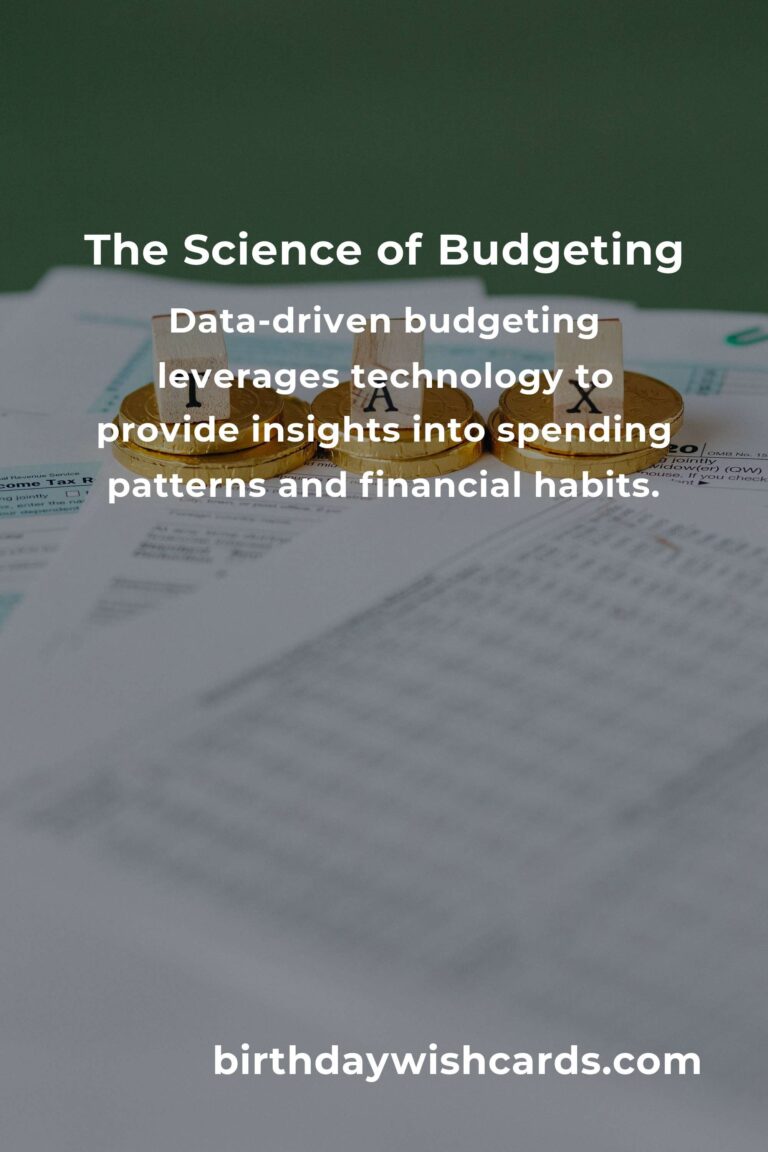
Budgeting is both an art and a science, a vital tool for managing personal and business finances effectively. It involves creating a plan to spend your money wisely, ensuring that you have enough for necessary expenses while saving for future goals. By understanding the science behind budgeting, you can make more informed financial decisions and achieve greater financial stability.
Understanding the Fundamentals of Budgeting
The science of budgeting is grounded in basic financial principles that prioritize income, expenses, and savings. The primary goal is to ensure that your expenses do not exceed your income, allowing you to save for both short-term and long-term objectives. This requires a deep understanding of your financial situation, including income sources, fixed and variable expenses, and potential savings opportunities.
One of the core principles is the 50/30/20 rule, which suggests allocating 50% of your income to necessities, 30% to discretionary spending, and 20% to savings and debt repayment. This rule provides a structured approach to managing finances and helps prevent overspending.
The Psychology of Budgeting
The psychology behind budgeting involves understanding how emotions and cognitive biases affect financial decisions. Many people struggle with budgeting due to emotional spending, lack of discipline, or a misunderstanding of their financial priorities. By recognizing these psychological factors, you can develop strategies to overcome them.
For example, setting clear financial goals and tracking progress can provide motivation and reinforce positive budgeting behavior. Additionally, creating a budget that aligns with your values and lifestyle can make it easier to stick to your financial plan.
Data-Driven Budgeting
In recent years, data-driven budgeting has gained popularity, leveraging technology to provide insights into spending patterns and financial habits. Budgeting apps and tools can track transactions, categorize expenses, and provide visual reports that highlight areas for improvement.
By analyzing this data, individuals can make informed decisions about where to cut costs and how to allocate resources more effectively. This scientific approach to budgeting allows for precise adjustments and can lead to significant financial improvements over time.
Implementing a Successful Budget
To implement a successful budget, start by assessing your current financial situation. List all sources of income and categorize your expenses into fixed and variable costs. Identify any areas where you can reduce spending and set realistic savings goals.
Next, choose a budgeting method that works for you, whether it’s the envelope system, zero-based budgeting, or a digital app. Regularly review and adjust your budget as needed to reflect changes in income or expenses.
Finally, maintain discipline and stay committed to your financial plan. Remember that budgeting is an ongoing process that requires regular attention and adjustments to achieve financial success.
Conclusion
The science behind effective budgeting combines financial principles, psychological insights, and data-driven analysis to create a comprehensive approach to managing money. By understanding and applying these concepts, you can take control of your finances, reduce financial stress, and work towards achieving your financial goals.
Budgeting is a vital tool for managing personal and business finances effectively. The 50/30/20 rule provides a structured approach to managing finances and helps prevent overspending. The psychology behind budgeting involves understanding how emotions and cognitive biases affect financial decisions. Data-driven budgeting leverages technology to provide insights into spending patterns and financial habits. Maintaining discipline and staying committed to your financial plan is crucial for successful budgeting.
#Budgeting #FinancialPlanning #PersonalFinance #MoneyManagement #SavingTips













